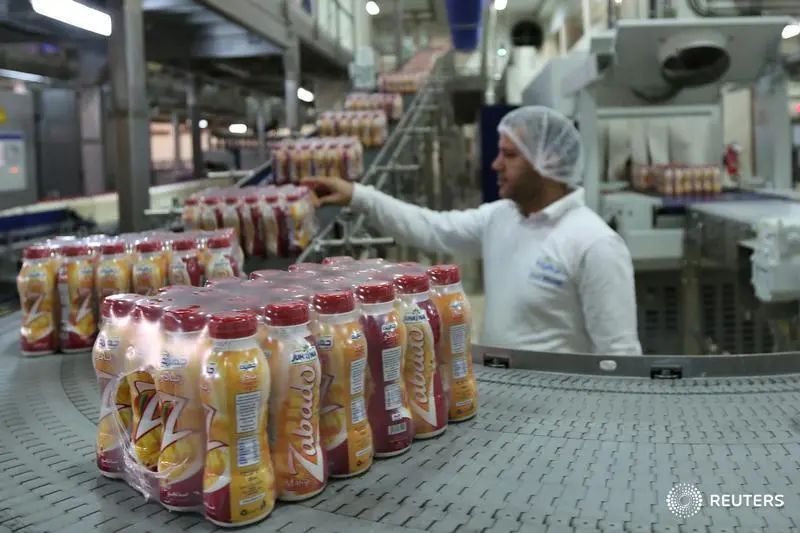PHOTO
Juhayna Food Industries is planning to use an element of solar energy at all of the company’s plants next year, an executive has said.
The company, which produces dairy products, yoghurts and juices, will start by converting its International Company for Modern Food Industries (El Dawleya) plant at Sixth of October City, head of external relations Passant Fouad said during a panel discussion last week.
"In partnership with Solarize Egypt - the EPC (engineering, procurement and construction) company which will finance, design and commission PV solar power - we are planning to use 100 percent solar energy within our International Company for Modern Food Industries (El-Dawleya) by 2019, besides turning the rest of factories to use 12-15 percent solar energy (as a percentage of total energy use) during the same period," Fouad said at the panel discussion at the El Dawleya plant.
She said the El Dawleya plant had recently gained ISO 50001 certification for energy management standards and that the company is working towards certifying its remaining factories during the second and third quarters of 2019.
The company’s subsidiaries include Masreya Dairy and Juice Company (El Masreya), International Company for Modern Food Industries (El-Dawleya), The Egyptian Company for Food Industries (Egyfood), El-Marwa Food Industries (El-Marwa), the Modern Concentrate Company, Tiba for Trade & Distribution and Al-Enmaa for Agriculture Development and Livestock Company.
According to its website, Juhayna Food Industries makes over 200 different products and employs over 4,000 people. Last year, it had a turnover of just over 6 billion Egyptian pounds ($338.7 million), a 21.5 percent increase on the previous year. Net profit virtually trebled to 157.5 million pounds during the same period.
The company already has a 1 megawatt solar power plant that was built in 2016 to provide energy to its farms in the oasis area. It was built to replace diesel generators, reducing the company's carbon footprint as well as fuel and maintenance costs, becoming one of the first Egyptian agricultural producers to use clean energy to operate farms in the heart of the Egyptian desert.
"Oasis area farm, with about 4,000 cattle, is also considering the establishment of the first biogas plant in the industrial sector,” the company’s engineering manager, Mostafa Agamy said. He added that the 3.5 megawatt biogas plant will be built by the end of next year. It will cost 55 million Egyptian pounds to build.
“The board of directors agreed to establish the biogas plant to take advantage of the livestock waste, to produce the energy needed by the company and now we are in negotiations with the European Bank for Reconstruction and Development (EBRD) and the Commercial International Bank (CIB) and other green finance institutions to fund the biogas plant project,” Agamy said.
He added that the farm’s power generating capacity exceeds its own need, and that the firm was consulting with nearby farms to supply electricity to them.
The company received an award from Egypt’s National Cleaner Production Centre, and the United Nations’ Industrial Development Organisation (UNIDO) in recognition of its efforts to reduce industrial pollution.
(Reporting by Marwa Abo Almajd; Editing by Michael Fahy)
(michael.fahy@refinitiv.com)
© ZAWYA 2018





















